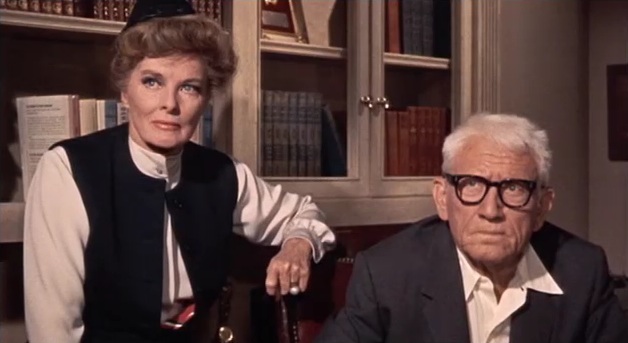Where Are The Original Movies?
I understand that movies need to make money, and that production costs have gone up with the number of special affects, and with the growing size of the cast. Hence, movies with superheroes or super-villians are likely the most expensive.
I also understand that movie makers like to have a sure thing. Hence, when Harry Potter sells hundreds of thousands of copies of the first book in the series, and lines start forming to get copies of the next books, making the stories into movies seems like a fairly safe bet.
But I can’t help wondering—is the mad dash to make money squeezing movies into a narrow slot? Must they be movie re-tellings of books or comics . . . or of other movies? Is there no room for a brand new story made originally for the screen?
I’m not the only person to wonder about this trend:
We all know it’s true. Every single movie that’s overly promoted is what exactly? A sequel, a remake, a reboot, a movie adaptation, take your pick. (“Hollywood’s Need for Original Scripts”)
Since movies are considered an art form, albeit a pop art form, I wonder what having so little original material says about our creativity as culture.
At the least, I’d say our art, when it comes to movies, is subservient to the money it makes. Again, I understand that those who produce movies invest great sums without any assurance of a return on that investment. Movies aren’t like books. When the UK publisher, Bloomsbury took a chance on an unknown debut author, they ran a print run of 500 copies. Five hundred! In other words, their investment was rather small. Sure, they had to pay for editing and layout and cover design and so on, but if the book failed, they likely would not lose thousands of pounds. (As it turns out those first edition copies are now worth upwards of $90,000.)
 But I wonder if the movie industry isn’t squeezing itself needlessly. Seems to me there was a time not so long ago that quiet movies with smaller casts were quite possible. In 1968 a movie with an original screenplay became a $56 million success. I’m referring to Guess Who’s Coming To Dinner starring Spencer Tracy, Sidney Poitier, and Katharine Hepburn. Big stars at the time, so I’m guessing this was not a cheap movie.
But I wonder if the movie industry isn’t squeezing itself needlessly. Seems to me there was a time not so long ago that quiet movies with smaller casts were quite possible. In 1968 a movie with an original screenplay became a $56 million success. I’m referring to Guess Who’s Coming To Dinner starring Spencer Tracy, Sidney Poitier, and Katharine Hepburn. Big stars at the time, so I’m guessing this was not a cheap movie.
As it happens, that movie did what art sometimes does: it molded as well as reflected the culture in which it was made.
When special effects gained so much in the computer age, I was right there applauding with everyone else. Now, at long last, movies could depict the magical creatures of fantasy and science fiction in a realistic way. Our imagination came to life on the big screen!
Perhaps this fact alone explains the explosion of speculative movies in the 21st century. On one list of top box office successes, of the 25 movies that made the most money in this century, twenty-one were speculative movies.
I applaud this trend.
I do not applaud the lack of original material.
One site decrying the fact that movies are reliant upon adapted material says the answer lies with moviegoers. The approach is much the same as the one I took fifteen years ago when I longed for more publishers to give Christian fantasy a chance. Since money drives the industry, we consumers of art need to speak the language of those making the art work available to us.
With books, self-publishing has had a huge impact on the availability of speculative fiction, including Christian speculative fiction. A quick look at the library here at Spec Faith should convince a reader of that fact.
Could the same thing happen with movies? Only time will tell. But the task seems rather daunting—finding the actors, the staging, the skilled technicians, and of course the great screenwriters. Making a movie is not as simple as putting up a YouTube video.
I don’t know what the answer is. But I for one, would like to see the art of movie making include original scripts, written for the film media and not dependent on an adaptation.







































In a lot of ways, it’s probably more of a problem of movies becoming too formulaic, rather than them being adaptations. Often enough, it feels like filmmakers see a book and are like ‘Oh, here’s an awesome story, it totally deserves a movie adaptation!’ *proceeds to remove everything that made the story special in the first place just so it can fit into the acceptable formula *
An example of that would be the Guardians of Gahoole movie. It wasn’t horrible. At the very least the animation looked nice. But the books(from what I’ve read) were a million times better. They understandably couldn’t put everything from those books in the movie, but it would have been nice if they kept more of the worldbuilding intact at least.
Here’s a video discussing some of the issues adaptations face:
Buuut, it’s not necessarily an issue of these shows being adaptations, for the most part. It’s more like a vicious cycle that goes between filmmakers playing it too safe, and audiences demanding certain things.
In the case of stories like Guardians of Gahoole and Warriors, it goes kind of like this: People think animated stories(especially ones about animals) are automatically for kids and will freak out if they aren’t kid friendly. Either that, or adults just don’t think animal centric stories have anything to offer. In response, filmmakers mainly make animated animal stories for kids, which fuels the animal story stigma, etc. So, Guardians of Gahoole ended up in the formula of a standard little kid’s adventure movie in terms of plot, characterization, etc.
People can do a lot with very little, when it comes to shows. There are tons of indie animated projects online that are very good but also much lower budget than what Hollywood makes. Those tend to be far shorter, but that’s partly due to the fact that people usually make those as a hobby or for school assignments.
Also, sometimes movies are really good when they’re adapted from more obscure content. They may not do as well at the box office, but they can still be great shows. Arrival was good, and I heard it was based off a short story. It’s probably the best scifi show I’ve seen in a long time, and it’s nice that it felt like a mystery that was being unraveled, and an experience we were sharing with the character, rather than just an action movie. The main char is a linguist, too, which is more unusual. So maybe filmmakers should try to take more chances on obscure things.
All great points, Autumn. Movies do want to force stories into a formula. Not good! That’s as big a problem as “only adaptations.”
Becky
Television is the new Hollywood. It’s where the original ideas are going. Stranger Things, etc. Part of this is because great storytellers get much more latitude for exploring their ideas (more than 90 minutes). Another part is that the barrier to entry is basically as low as you can get it, instead of $12 plus an overpriced box of popcorn, so people can deal with risky sounding material that might not pan out. There’s not really any medium budget films anymore. Just huge budget films, and way more small budget films ($1-$5m) that can more easily take risks. It’s a wonderful time for indy filmmaking. Those films just don’t get wide theatrical distribution because the logistics are difficult to overcome, so it seems as if they’re not being made.
Original scripts are the exception, not the rule. From its very beginning, the film industry has relied on novels and stories already on the market. After all, you want to know the story you will film is a good bet, and if it has sold well as a print book you get the idea that it will do well as a film. Original scripts are few and far between and always have been.
The answer? Indie movies.
Even spec fiction can work. As long as we don’t over-rely on special effects and big names. (Sorry but I find Kirk Cameron’s acting underwhelming.)
Remember the old Twilight Zone episodes? A more recent example would be The Lobster. That was a very interesting–and original–flick made by an indie producer.
At least all the horrible drivel from Hollywood has lowered the bar now. Maybe we can have good Christian movies by contrast. Lol.
There is a big difference in writing for the stage and writing for the screen. It is an enormous undertaking to include focus, screenshots, dissolve to black, etc – that goes with a screenplay. Many of the most popular action films aimed towards the male markets are original stories and screenplays – Taken, John Wick, Fast & the Furious, for example. All of Quentin Tarrantino’s films are original screenplays as is the Matrix series from The Wachowskis, and the many films done by the Cohen Brothers, Fargo and The Big Lebowski, for example. Let’s not forget that StarWars was an original screenplay as was Indian Jones. Don’t knock a good thing! =)
There are plenty of “Art House” films out there. They win the Oscars, but they don’t make money. These boys don’t really care. They are laughing all the way to the bank.